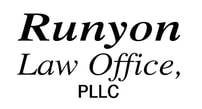Reversal of Fortune
As Fred Thompson and Henry Winkler have told us, these mortgages are for the 62+ folks who have comfy homes that they don't want to give up, but who need additional income to keep up with their real estate taxes or other living expenses. The idea is that you get approved for a mortgage amount based on the value of your home and certain actuarial factors - then the lender pays you a monthly stipend for the rest of your life or until you decide you really do want/need to sell. At that point, whatever you've been paid, plus the interest the lender is charging (they're not doing this for free, no matter how wonderful Fred or Henry makes it sound), get repaid, like what would happen with a regular mortgage.
That all sounds fine, but what if you die while you still own the house and with a large reverse mortgage balance outstanding - and your spouse still needs a place to live? That can be a problem if only one of a couple owns the property and took out the mortgage just in the decedent's name. The obvious solution to that snag would be to make sure the mortgage is in both names, so the survivor can also stay at home, if so inclined.
Or more troubling, what if both parents are now gone, but there's a child who wants to keep the old homestead - maybe the child has been living there providing care for Mom or Pop? Can that child assume the mortgage and start making monthly payments? Unfortunately, somewhere in the fine print it clearly says no. So, unless the child can qualify for a new mortgage on his/her own - and pretty quickly - the child either has to sell, or Fred and Henry are going to drop the hammer and foreclose. That could not only dislocate a loyal but vulnerable child, but also result in a forced sale at a depressed price that wipes out whatever equity the property may have.
The key to avoiding these and other unanticipated results is to get the answers about likely scenarios before innocently signing up for a reverse mortgage and having the bottom fall out later on when there aren't any decent options. For example, before proceeding, try to determine whether anyone in the family is likely to want to keep the house once all the seniors are gone. If not, then the house will be sold anyhow and a reverse mortgage may make perfect sense after all. If so, however, it's important to discuss the situation with the lender before proceeding. Maybe instead of a reverse mortgage, it might make sense to consider a plain old equity line of credit that the lender would allow to be assumed by the interested offspring. Of course, if the lender commits to that, make sure they put it in writing, as your helpful loan officer will undoubtedly be working somewhere else when the time comes.
Posted 02/09/2015 Misc.
